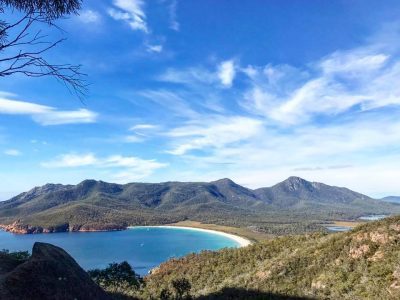In February 2010, the Australian Government through the then Dept. of Climate Change and Energy Efficiency (DCCEE), hosted a National Climate Change Forum in Adelaide. The topic of this meeting was “Developing a national coastal adaptation agenda”. Minister Greg Combet in his Foreword to the report on the Forum stated: “Governments must now collaborate to ensure that climate change impacts on coastal communities, industries and environments are identified and communicated, and that planning is commenced so that serious near-term risks can be managed…It will take time to adapt and current uncertainties call for creativity and flexible approaches, not delay”. His predecessor as Minister for Climate Change and Water (DCCW), the Hon Penny Wong, in opening and closing the Forum, told us we must roll up our sleeves and work together as a nation forging partnerships in addressing the adaptation challenge that requires “commitment of all levels of government” in association with business and community.
These words framed a great gathering of several hundred attendees with diverse coastal interests. As background we had the recently released (2009) reports of the House of Representatives Committee chaired by Jenny George (“The time to act is now”), and the DCC “First Pass Coastal Risk Assessment” report. Many of those present, including me, had been involved in discussions and work leading to these two Australian Government studies. The well-illustrated report from the Forum captured the spirit and enthusiasm of a brave new world of decision-making that fully anticipated what we could all contribute to meet those ministerial/federal government aspirations.
One of the contributors was the then Mayor of Mandurah, Paddi Creevey. I got to know her over the years and like many others appreciated her great passion and understanding of coastal issues from both community and local/state government perspectives. She suggested the Commonwealth provide guidelines or a template for vulnerability assessment to speed up local government assessment processes so they could focus on next steps. To do this she said the Commonwealth could “draw together experiences of what local governments and state governments have been doing around Australia and come up with what should be in those templates” (p.38). We were in a position to apply Combet’s and Wong’s words and work together as a nation to address common coastal risks. But did this happen?
Moving forward to the Australian Government’s response to the “George Report” later in 2010. It is not always the case that the Government decides to respond to a House of Representatives Committee report. It took a hung Parliament to stir action requiring input from an independent local member, Rob Oakeshott, whose electorate covered Port Macquarie on the NSW north coast. The response appeared in November 2010. It acknowledged the work of the George Committee, the National Coastal Risk Assessment report, and the 2010 position paper Adapting to Climate Change in Australia in which coastal management was identified as a “national priority for adaptation action”. The preface to the response says all the right things about using COAG and other councils for an “integrated national approach for the sustainable management of our coastline”. It even reverts back to the ALP 2007 Caring for our Coasts election statement which highlights the need “to work with state and territory governments, local councils and others to develop a coordinated national approach to coastal policy”. But an analysis of individual responses to the 47 recommendations shines a less optimistic light on just what a federal government can do, or is willing to do, at a national level in CZM.
While some steps were made in the subsequent two years of Labor Government, messages set in the George Committee report were not really taken up. Of the 47 recommendations 19 were “noted” (or no action required); 19 were “agreed in principle” (we are thinking about them): and 9 were “agreed” (they fit into our existing plans!). For instance, NCCARF activities were supported (R36), as was a Coast and Climate Change Council (R40). But both never became a permanent part of the public service framework of the Australian Government. The grand idea of an “Intergovernmental Agreement” (R44) supported by COAG and other ministerial councils would not survive for long under an Abbott-led Coalition after 2013.
So what of the suggestion made by Paddi Creevey? While George Report recommendations did highlight the need to improve the capacity of local government in CZM, sadly, most were placed in the “noted” category. This was particularly the case with R7 which could only say that matters such as “use of consistent methodology for vulnerability assessments” under the Local Adaptation Pathways Program is under review. Couple that with some of the other “noted” responses and there seemed little enthusiasm for any sustained investments in ways similar to the those under the US Coastal Management Act 1972 (R47). We had to wait till Greg Hunt became Environment Minister for a more specific directive and for funding to NCCARF for CoastAdapt before we saw a federal government seek to build the knowledge base for local councils—and we know what happened to NCCARF!
This is a small glimpse into the difficulties we face as a federation in achieving sustained environmental outcomes involving cooperation across all levels of government. It has taken another major inquiry following the bushfire disasters of 2019-20 to stimulate another round on federal engagement in climate adaptation initiatives. Coastal issues are to be included in the work of Australian Climate Service which aims to “support a more resilient nation in the face of climate and natural hazards”. The service formally commenced on 1 July (acs.gov.au). We await further news on what it will mean for CZM and collaboration with states and local councils.
Bruce Thom
Words by Prof Bruce Thom. Please respect the author’s thoughts and reference appropriately: (c) ACS, 2021. For correspondence about this blog post please email austcoastsoc@gmail.com
#195


 LARGS: A GEOHERITAGE SITE?
LARGS: A GEOHERITAGE SITE?